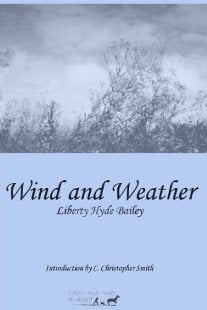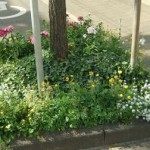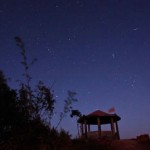 This is the first in my promised series of reflections on Liberty Hyde Bailey’s poetry.
This is the first in my promised series of reflections on Liberty Hyde Bailey’s poetry.
[ Bailey’s collection of poems Wind and Weather, has just been released by The Englewood Review of Books as a bargain-priced Kindle ebook. It’s well worth it! ]
Miracle
Yesterday the twig was brown and bare;
To-day the glint of green is there
To-morrow will be leaflets spare;
I know no thing so wondrous fair
No miracle so strangely rare.
I wonder what will next be there.
One of the great losses in the post-industrial age, is the disappearance of wonder. Our pace of life moves so fast that we don’t have time to take in our surroundings deeply, to reflect on them and to wonder, as was the source of many of Bailey’s poem’s including “Miracle.” To wonder takes time. We often speak of child-like wonder, for what is it but time that makes wonder possible for the child but not the adult?
About a year ago, I was profoundly moved by a re-reading of Abraham Joshua Heschel’s classic little book, The Sabbath. What struck me anew in this reading was that the Sabbath was intended as a communal practice, a practice that gave shape — not primarily to individuals — but to Israel, the people of God. Furthermore, the Sabbath was designed to be a day of minimal activity, a day ripe for being present to others and to nature, a day ripe for reveling, reflection and wonder.
Sabbath, as a real, corporate practice, is one place where our ideas about Slow Church hit the ground. We are not going to slow down without intentional practices that shape us in that direction. The world is full of beauty and mystery, but we will miss these delightful gifts of God if we do not slow down. God is not in a hurry, and the sabbath way that God intends for the people of God indicates that we shouldn’t be rushed either. Wonder is a gift that the church — in its faithfulness to the way of God — can give to the world. We don’t have to live life at breakneck pace. “Nature luxuriates,” says theologian Gerhard Lohfink, who goes on to observe that God has provided abundantly for creation — in beauty, as well as resources. In Christ, we do not need to fear scarcity of time or resources. The question is, do we trust God’s provision for us to be the people we were created to be — a people marked by peace, joy… and wonder?
What practices do you have of cultivating attentiveness and wonder — as individuals or churches?












